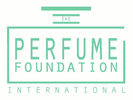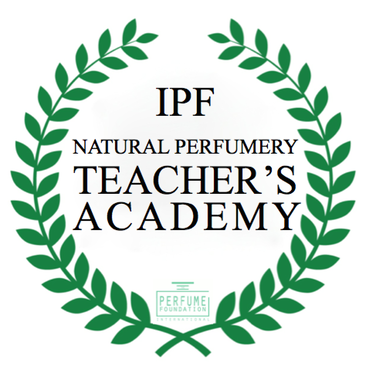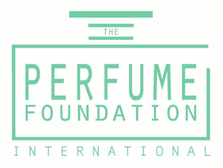|
by Terry Johnson, Business and Marketing Expert The term Consumer-Centric Marketing refers to making consumer satisfaction a focus of your activities regardless of where you are in the supply chain. One might say “But doesn’t every retailer already do that?” Surprisingly, most retailers have either not developed effective Consumer-Centric policies or have not significantly modified them since the beginning of the pandemic. For High-Value Natural Essence retailers Consumer-Centric Marketing depends on retailers educating themselves with what consumers now want and also what they should want. What High-Value Consumers Want High-Value consumers are those who demand more value from the products they purchase, are willing to pay more if those demands are met, and if satisfied, will re-purchase again and again. The post-pandemic world has changed everything, including High-Value consumers’ purchasing behaviors. What were priorities for them before, aren’t necessarily what they prioritize now. One way to get a better appreciation of what current consumers want is to study how and why similar industries, such as sustainable brewed coffee (Starbucks) and premium wines (or other High-Value products similar to these examples), have succeeded. Find out how these companies engaged consumers using Consumer-Centric Marketing strategies. What High-Value Consumers Should Want A key point in convincing consumers to purchase from High-Value Natural Essence retailers is to first assume that most consumers don’t know your product well or at all. This should not be difficult, since if you are a Natural Perfumer, you are competing with synthetic perfumes that have 99% of the perfume market share. This lack of market share underscores the importance of Natural Essence retailers needing to differentiate themselves from competition in as many ways as possible. And keep in mind, we have products that are better for consumers’ health and happiness. This has great value to consumers, with wellness now at the top of every consumer’s purchasing priority list. Knowing what High-Value consumers should want (that they may not be receiving now) can put Natural Essence retailers in a much stronger competitive position to successfully engage their market. Here is a list of what potential High-Value Natural Essence consumers should want:
Are Consumer-Centric Marketing strategies included in your Vision Statement, Mission Statement, and Value Proposition ? Consumer-Centric marketing practices should permeate throughout your business, so it is absolutely necessary to incorporate Consumer Centricity into your Vision Statement, Mission Statement, and Value Proposition. Nothing is more important to a successful Natural Essence retailer’s future than these three related documents. They express exactly what you intend to do and can focus everyone on the importance and value of why you are doing it. Yet most retailers have either never developed them, have not properly developed them, or have not updated and modified them since the beginning the pandemic. Including Consumer-Centric Marketing strategies in your Vision Statement, Mission Statement, and Value Proposition will empower you, your business, and everyone working with you to clearly differentiate your business, and your products, while maximizing the market impact of your brand.
0 Comments
By Terry JOHNSON, IPF US Chairman, New Luxury Business and Marketing Expert This article was written for retailers. By retailer, I mean a business that sells to consumers, and I am addressing those retailers who want to significantly grow their sales and profits to consumers despite the difficulties we are facing.
An important part of a retailer’s business plan should be properly forecasting future sales and profits. This not easy in the current economy, yet it is vital to surviving in today’s Natural Essences retail environment. For instance, if you are not forecasting sales increases well in excess of 10%, you will not be growing your business or perhaps even be going backwards simply because inflation will keep increasing costs on everything, including bottles, labels, and ingredients, shipping, insurance, legal, and accounting services. Improving sales forecasting is sometimes far too low on the list of priorities for retailers, but for a small business competing against very large companies in a turbulent market, proper sales forecasting depends on continually improving your marketing strategies and your supply chain relationships as well. 1. Marketing Strategies
2. Supply Chain Relationships
Learn more about business and marketing in the natural perfumery environment by enrolling to Terry's 6 weeks intensive Business and Marketing Course starting on February 14. |
Archives
March 2024
Categories
All
|
- Home
- About
- Why choosing us
- Mission
- Academicians
- IPF Certification
-
COURSES
-
MASTER CLASSES
- Teaching Methodology
- Natural Raw Material Extraction Methods >
- Natural Candle Making
- Healing Gardening
- Sustainable Oud MasterClass
- World Perfume History Master Class
- Scent Design and Formula Building >
- Fragrant Botany & Chemistry >
- Perfume Design, Concept and Storytelling
- French Natural Aromachology #1
- French Natural Aromachology #2
- Olfaction Training for Children
- Accords - Musks
- Accords - Chypre
- Accords - White Florals 1
- Accords - Fougeres and Aromatics
- FRAGRANCE DEVELOPMENT
- SPEAKERS
- EXHIBITIONS
- Partners
- Blog
- Contact




 RSS Feed
RSS Feed
